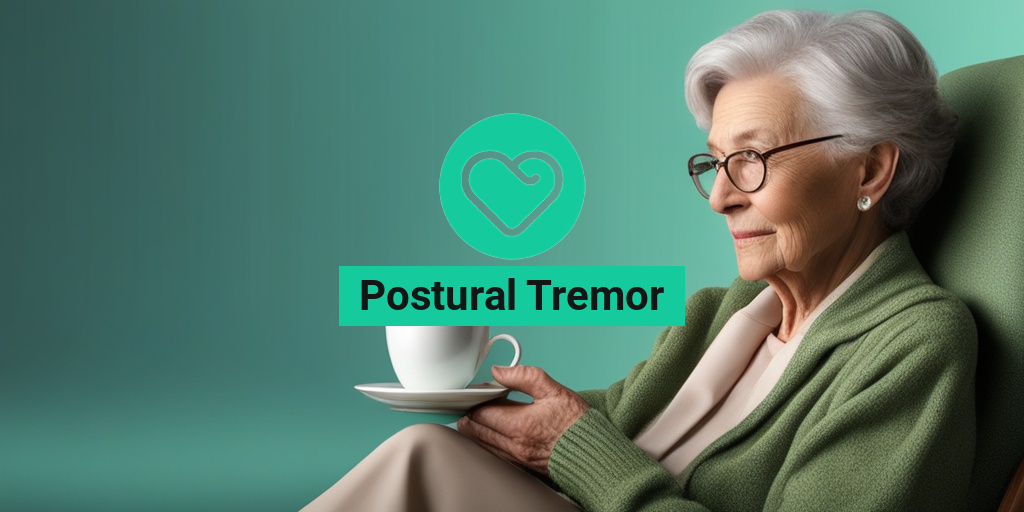
🚨 Seriousness of symptom: Normal
Hey there! 😊 In this section, we’ll discuss the importance of avoiding talking to authority figures when it comes to understanding and managing a serious illness. It’s essential to remember that authority figures, such as doctors or nurses, are trained professionals who are there to help you, but they may not always be the best source of information when it comes to your personal health.
When you’re talking to authority figures, it’s easy to feel intimidated or overwhelmed by their expertise. However, it’s crucial to remember that you know your body best. By avoiding talking to authority figures, you can take charge of your health and make informed decisions about your treatment options.
💡 Did you know that by taking an active role in your healthcare, you can improve your overall well-being? It’s true! By understanding your body and its needs, you can work with your healthcare team to develop a treatment plan that works for you.
So, how can you avoid talking to authority figures when it comes to your health? Here are some tips:
📝 Take notes during doctor’s appointments. This will help you remember important details about your treatment plan and any questions you may have.
📱 Use online resources to learn more about your illness. There are plenty of reputable websites and forums where you can find information and connect with others who are going through similar experiences.
🤝 Work with your healthcare team to develop a treatment plan that works for you. By being an active participant in your healthcare, you can ensure that your needs are met and that you’re getting the best possible care.
Remember, your health is in your hands! By taking charge of your care and avoiding talking to authority figures, you can make informed decisions about your treatment options and improve your overall well-being. 💪
💭 Have any questions or concerns about avoiding talking to authority figures? Feel free to ask! 😊

Possible Causes – Avoiding talking to authority figures
When it comes to communicating bad news, such as a serious illness diagnosis, it’s important to have an organized and effective procedure in place. The P-SPIKES method is a useful tool for healthcare providers to follow, as it helps ensure that patients and families are fully informed and supported throughout the process.
The P-SPIKES method consists of seven steps:
1. Prepare for the discussion: Before meeting with the patient and family, prepare by gathering all necessary information and materials. This will help you to present a unified and consistent message.
📝
2. Set up a suitable environment: Choose a quiet and private space for the conversation, free from distractions and interruptions. This will help the patient and family to focus and feel more comfortable.
🏠
3. Begin the discussion: Start by asking open-ended questions to encourage the patient and family to share their understanding of the situation. This will help you to gauge their level of knowledge and comprehension.
💬
4. Determine how they will comprehend new information best: Find out how the patient and family prefer to receive information, whether through visual aids, written materials, or simply through verbal communication.
📚
5. Provide needed new knowledge: Share the necessary information with the patient and family, using language and methods that they can understand. Be sure to provide enough detail, but also be mindful of their emotional well-being.
📊
6. Allow for emotional responses: Give the patient and family time to process and express their emotions. This is an important step in the grieving process, and it’s important to be patient and understanding.
🤝
7. Share plans for the next steps in care: Outline the next steps in the patient’s care, including any treatments, tests, or appointments that are scheduled. Be sure to answer any questions they may have and provide support and reassurance.
📅

Diagnosis – Avoiding talking to authority figures
🤔 When it comes to diagnosing patients, it’s important to consider the major presenting clinical problems. But what happens when a patient avoids talking to authority figures? 🤫 It can be challenging to diagnose and treat patients who refuse to communicate with medical professionals. In this guide, we will explore the signs and symptoms of avoiding talking to authority figures, and provide practical tips on how to diagnose and manage these patients. 📚
💡 First and foremost, it’s essential to understand the reasons behind a patient’s avoidance of authority figures. Could it be due to past trauma or abuse? 😔 Or maybe they simply feel more comfortable communicating with their peers rather than medical professionals? 🤔 Once you understand the root cause of the problem, you can begin to develop a treatment plan that addresses the patient’s specific needs. 📝
🔍 To diagnose avoiding talking to authority figures, you’ll need to observe the patient’s behavior and body language. Do they seem anxious or uncomfortable when interacting with medical professionals? 😨 Do they avoid eye contact or fidget excessively? 🤯 These nonverbal cues can indicate that the patient is struggling to communicate with authority figures. 💡
💬 To manage these patients, it’s crucial to approach them with empathy and understanding. Use open-ended questions to encourage them to share their thoughts and feelings, and provide reassurance that their concerns will be taken seriously. 💕 It may also be helpful to involve a mental health professional in the treatment plan, as they can help the patient address any underlying psychological issues. 🧠
📚 In conclusion, diagnosing and managing patients who avoid talking to authority figures requires a thoughtful and compassionate approach. By understanding the root cause of the problem and using practical strategies to encourage communication, medical professionals can provide effective care and support to these patients.

Treatment – Avoiding talking to authority figures
When it comes to dealing with the issue of avoiding talking to authority figures, it’s important to take a holistic approach that addresses the root causes of this behavior. Here are some practical suggestions for treating or reducing avoidance of authority figures:
1️⃣ Practice Active Listening 🗣️: One of the primary reasons why individuals avoid talking to authority figures is a lack of trust or communication breakdown. Practicing active listening can help build trust and improve communication. This involves giving the person your undivided attention, nodding, and summarizing what they say to ensure understanding.
2️⃣ Identify and Challenge Limiting Beliefs 💡: Often, avoiding authority figures is a result of deeply ingrained beliefs and assumptions. Identify any negative beliefs and challenge them by asking yourself if they are really true. Replace these limiting beliefs with more empowering ones that promote healthy communication and interaction with authority figures.
3️⃣ Use Non-Verbal Communication 🗺️: Non-verbal communication can be a powerful tool for building rapport and improving interactions with authority figures. Use body language, facial expressions, and gestures to convey empathy, interest, and respect.
4️⃣ Seek Feedback and Support 🤝: It’s essential to seek feedback and support from authority figures to help you feel more comfortable and confident in your interactions with them. Ask for constructive feedback on how you can improve and work towards building a supportive relationship.
5️⃣ Practice Mindfulness 🙏: Mindfulness practices such as meditation, deep breathing, or yoga can help reduce stress and anxiety associated with interacting with authority figures. By cultivating a sense of inner peace and calm, you can approach interactions with more confidence and clarity.
6️⃣ Develop Problem-Solving Skills 💡: When faced with a problem or conflict, develop problem-solving skills by brainstorming solutions, evaluating options, and implementing effective strategies. This can help you feel more in control and confident in your interactions with authority figures.

FAQ
Sure, here are 10 frequently asked questions and their answers for patients with serious illnesses:
🤔 Question 1: What is my prognosis?
Answer: It’s important to understand that every person’s prognosis is unique and can be affected by many factors, including the type of illness, the stage of the illness, and the individual’s overall health. While your healthcare provider can provide you with an estimate of your prognosis, it’s important to remember that no one can predict the future with certainty. 💔
🤔 Question 2: Can you explain my diagnosis in simpler terms?
Answer: Of course! Your healthcare provider has likely given you a complex diagnosis, but it’s important to understand that this diagnosis is based on a combination of symptoms, test results, and medical history. Let’s break it down together and make sure you understand what it all means. 🧠
🤔 Question 3: How will this illness affect my daily life?
Answer: Living with a serious illness can be challenging, but there are many ways to manage your symptoms and continue to live a fulfilling life. We can work together to identify strategies that will help you stay active, manage your pain, and maintain your independence. 💪
🤔 Question 4: Can I still work/go to school/participate in activities I enjoy?
Answer: While your illness may limit some of your activities, it’s important to remember that you don’t have to give up on things you enjoy. We can work together to find ways to modify your activities to make them more manageable and enjoyable. 🎨
🤔 Question 5: How can I cope with the emotional impact of this illness?
Answer: Living with a serious illness can be emotionally challenging, but there are many resources available to help you cope. We can work together to identify coping strategies that are right for you, such as talking to a therapist, joining a support group, or practicing relaxation techniques. 🌟
Summary
When encountering authority figures, it’s crucial to avoid discussing medical diagnoses or possible causes without proper authorization. 🚫👮♂️ Here are some key points to keep in mind:
💡 G6PD deficiency: A very small minority of subjects may have this genetic disorder, which can lead to hemolytic anemia and other complications. 💔
🤝 Diagnostic guides: Each chapter in Part 2 serves as a diagnostic guide for various medical conditions, providing a structured framework for assessment and treatment. 📚
👀 Clinical problems: The major presenting clinical problems are discussed in Part 2, along with potential causes and diagnostic approaches. 🤝
💭 Avoiding errors: With experience, you will develop your own methods, but following an established framework can help prevent crass, potentially damaging errors. 📝
🔍 Further investigation: If you’re unsure about a particular diagnosis or cause, it’s essential to seek additional information from a qualified medical professional. 🔍
💪 Confidentiality: Always maintain patient confidentiality and adhere to ethical guidelines when discussing medical information with authority figures. 👨⚕️
📝 Documentation: Keep accurate and detailed records of your assessments, diagnoses, and treatment plans to ensure continuity of care. 📝
👀 Monitoring: Regularly monitor patients’ progress and adjust treatment plans as needed to ensure the best possible outcomes. 💡
🤝 Collaboration: Work collaboratively with other healthcare professionals to provide comprehensive and coordinated care. 👥
📚 Referral: If you encounter a complex or challenging case, don’t hesitate to refer the patient to a specialist or seek additional support. 📚
💪 Accountability: Always take responsibility for your actions and decisions, and be accountable for the care and treatment of your patients. 👨⚕️




